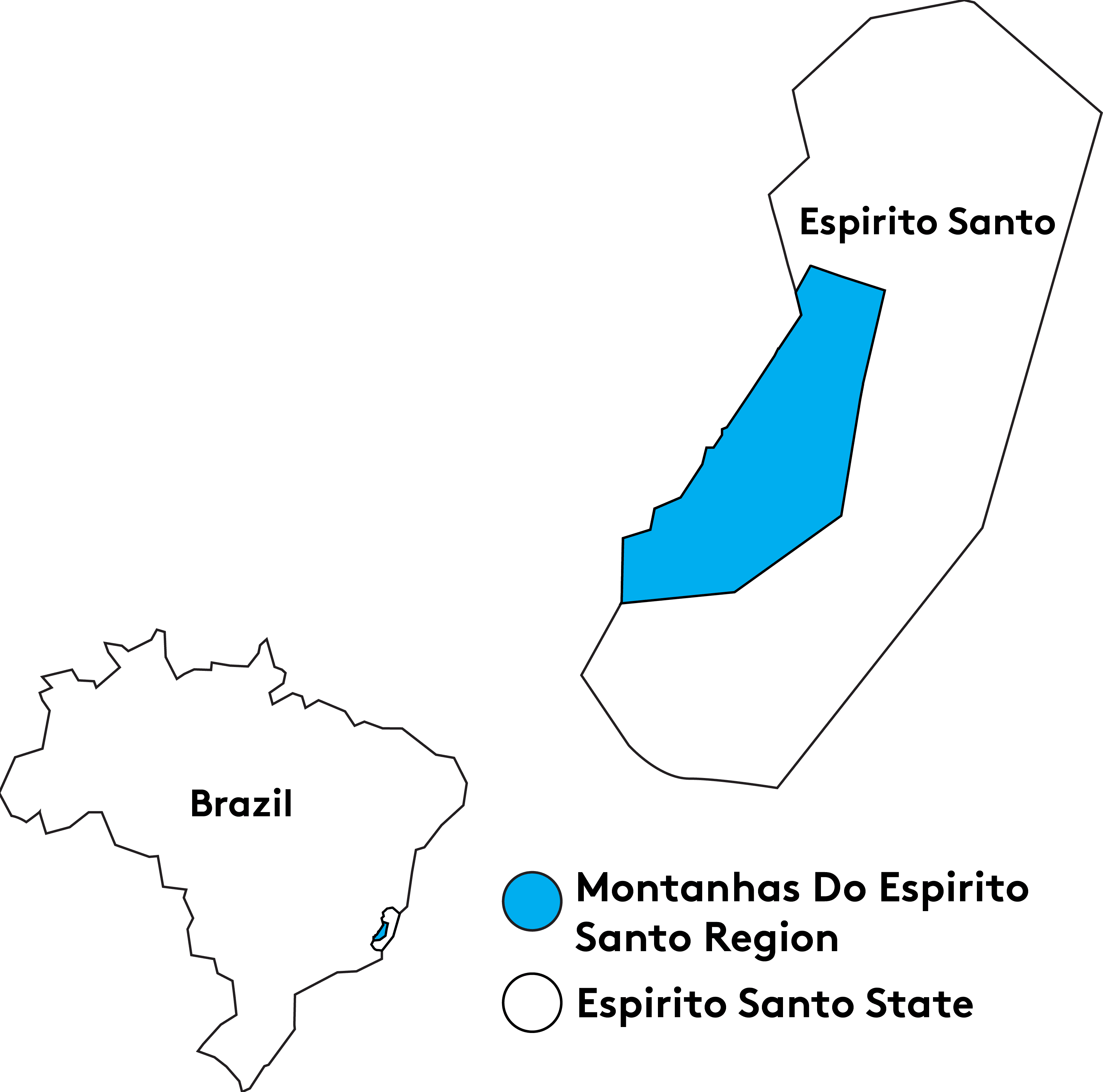Sítio Bateia can be found in the municipality of Castelo in the mountains of Capixabas in the south of Espírito Santo state. The farm is a partnership between three producers—José Fernando Fortunato, Ederval Sartori, and Edson Pires Sartori—who work together to cultivate the coffee here. After harvest, the coffee is divided between the three for post-harvest processing and sold by the producers as individuals.
Coffee producer José Fernando Fortunato grew up in the Bateia community since he was seven years old. His career in coffee began with him working on a farm for many years learning the standards of coffee production, but it wasn’t until he began working with brothers Ederval and Edson Sartori on Sítio Bateia that he learned about specialty coffee production.
José Fernando and the Sartori brothers have been developing their production processes for many years now at the farm. They adhere to selective harvest of only ripe cherries, and José Fernando dries his coffees on suspended beds in a greenhouse for a total of 15–20 days. Together they all share a vision of quality and sustainability in their production, seeking continuous improvement in their harvest and post-harvest processes.
This lot of Red Catucai underwent Pulped Natural processing. Catucai was developed as a cross between Icatu and Catuai. The first selection was made in 1988 by researchers at the then Brazilian Coffee Institute (IBC) in a population of the Red Icatu cultivar. After generations of breeding and selection in both Minas Gerais and Espírito Santo, the program gave rise to cultivars with red fruits and yellow fruits, then named Catucai.

